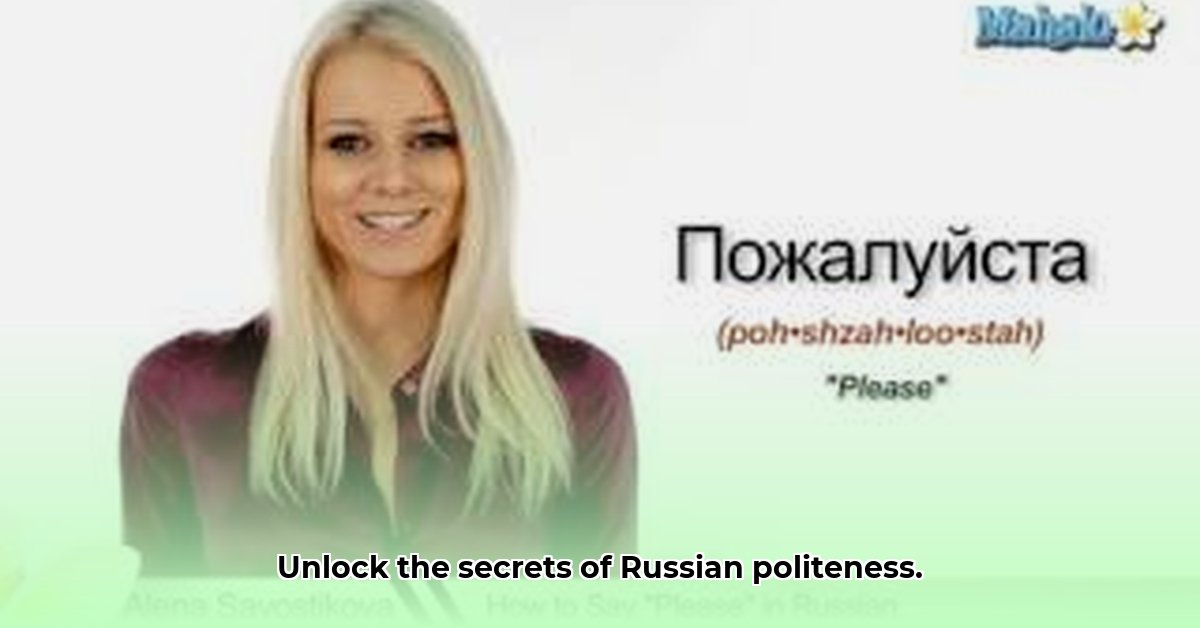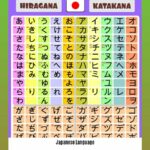Navigating the nuances of Russian politeness can significantly enhance your communication and cultural understanding. This guide delves into the multifaceted ways to say “please” in Russian, providing clear examples, pronunciation guides, and cultural insights to help you choose the perfect phrase for every situation. For a more comprehensive guide, check out this helpful resource.
The Cornerstone of Courtesy: Пожалуйста (Pozhaluysta)
- Pronunciation: /pə-zha-LOO-yis-ta/ (Often shortened to “pozhalsta” in casual conversation)
- Meaning: The most common and versatile translation of “please” and “you’re welcome.” This word is your go-to for most interactions.
- Examples:
- Пожалуйста, передайте мне соль. (Please pass me the salt.)
- Один кофе, пожалуйста. (One coffee, please.)
- Спасибо! (Thank you!) – Пожалуйста! (You’re welcome!)
- Formality: Adaptable to both formal and informal contexts. Its versatility makes it a cornerstone of polite Russian.
Cultural Insight: “Pozhaluysta” originates from the verb “pozhalovat’,” historically meaning “to bestow a favor.” Using this word subtly conveys a sense of granting a kindness.
Elevating Politeness: Будьте добры (Bud’te dobry)
- Pronunciation: /BOO-dyi-tye DO-bri/ (Changes depending on gender and number of addressees; see variations below)
- Meaning: “Be kind” or “Be so good.” This phrase expresses a higher degree of respect and consideration.
- Examples:
- Будьте добры, скажите мне время. (Could you please tell me the time?)
- Будьте добры, помогите мне с этим. (Would you be so kind as to help me with this?)
- Formality: Primarily formal. Use when addressing elders, superiors, or strangers in professional settings.
Variations and Cultural Nuances: Respect is paramount in Russian culture, especially towards elders. “Bud’te dobry” effectively demonstrates this respect. The phrase changes depending on the addressee:
* Будьте добры (Bud’te dobry): Plural or formal singular.
* Будь добр (Bud’ dobr): Informal singular masculine.
* Будь добра (Bud’ dobra): Informal singular feminine.
The Friendly “Please”: Будь другом (Bud’ drugom)
- Pronunciation: /bood DROO-gom/
- Meaning: “Be a friend.” An extremely informal expression reserved for close friends and family.
- Examples:
- Будь другом, дай мне ручку. (Hey friend, can I borrow your pen?)
- Будь другом, помоги мне с работой. (Hey buddy, give me a hand with this work.)
- Formality: Highly informal. Using this with strangers or authority figures would be inappropriate.
Cultural Insight: “Bud’ drugom” implies a close, almost familial bond, creating a sense of camaraderie.
Beyond “Please”: Other Polite Expressions
Russian offers a rich vocabulary for expressing politeness beyond the standard “please.” Here are some alternatives to add nuance to your conversations:
- Прошу (Proshu): /pra-SHOO/ – “I request.” Formal or neutral, suitable for brief requests and official announcements. Прошу прощения (Proshu proshcheniya) – “I beg your pardon” or “Excuse me.”
- Извините (Izvinite): /eez-vee-NEE-tye/ – “Excuse me.” Used to get someone’s attention or apologize. Can precede a request. Извините, не могли бы вы…? (Izvinite, ne mogli by vy…?) – “Excuse me, could you…?”
- Не могли бы вы…? (Ne mogli by vy…?): /nye mag-LEE by vy.https://www.lolaapp.com/ – “Could you…?” A polite way to make a request, especially to strangers or superiors. Often paired with пожалуйста.
- Если можно (Yesli mozhno): /YES-li MOZH-na/ – “If possible.” A softer, more indirect way of making a request.
Navigating Formality: A Quick Guide
| Phrase | Pronunciation | Formality Level | Suitable Context |
|---|---|---|---|
| Пожалуйста | /pə-zha-LOO-yis-ta/ | Adaptable | Most situations, both formal and informal |
| Будьте добры | /BOO-dyi-tye DO-bri/ | Formal | Showing respect, formal settings, elders |
| Будь другом | /bood DROO-gom/ | Very Informal | Close friends, family |
| Прошу | /pra-SHOO/ | Formal/Neutral | Announcements, brief requests |
| Извините | /eez-vee-NEE-tye/ | Varies | Getting attention, apologizing, preceding requests |
| Не могли бы вы…? | /nye mag-LEE by vy.https://www.lolaapp.com/ | Polite/Formal | Requests, especially to strangers/superiors |
| Если можно | /YES-li MOZH-na/ | Casual/Polite | Gentle, indirect requests |
Mastering Politeness in Business: A Strategic Approach
In the Russian business world, politeness and respect are highly valued. While “pozhaluysta” is generally appropriate, incorporating these strategies can enhance your professional interactions:
- Indirect Requests: Soften your requests with modal verbs like “mogli by vy” (could you). For example, “Могли бы вы, пожалуйста, передать мне этот документ?” (Could you, please, pass me that document?)
- Combining Polite Phrases: Enhance your courtesy by using “bud’te dobry” (be so kind) before a request, particularly in formal negotiations. Будьте добры, пожалуйста, пришлите мне этот отчет. (Would you be so kind as to send me that report, please?)
- Addressing Individuals Respectfully: Use appropriate titles and honorifics. Иван Иванович, не могли бы вы, пожалуйста, взглянуть на это? (Ivan Ivanovich, could you please take a look at this?)
- Attentive Listening and Clear Communication: Demonstrate respect by actively listening and expressing yourself clearly and concisely.
By mastering the art of Russian politeness, you not only demonstrate cultural sensitivity but also build rapport and trust, paving the way for more effective and successful communication.
- Unlock Water’s Symbolism: A Cross-Cultural Exploration - April 20, 2025
- Identify Black and White Snakes: Venomous or Harmless? - April 20, 2025
- Unlocking Potential: Origins High School’s NYC Story - April 20, 2025















